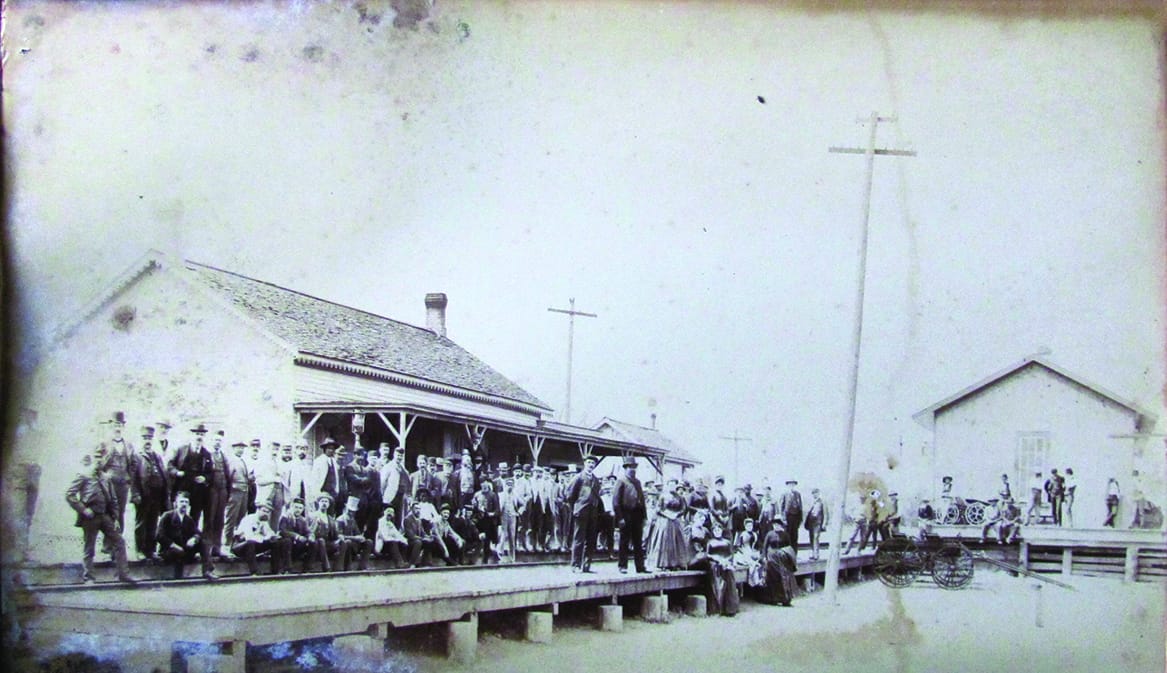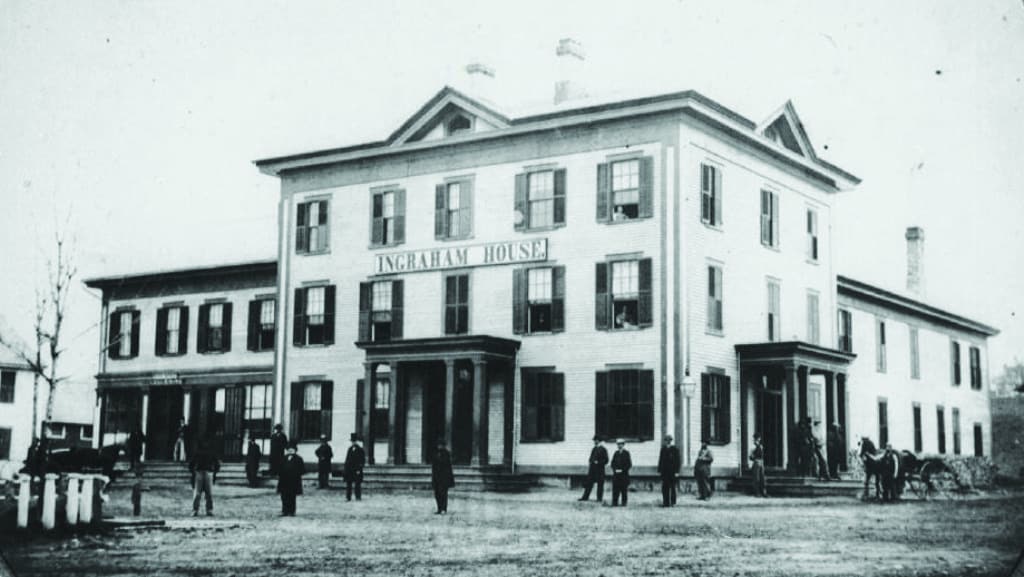

Below is some Chester Depot railroad history. Robert “Bob” Adams wrote this history for me in 2005. Bob had retired from the Rutland Railroad. He was about to meet Nelson Blount. These two men, with others, including Gov. Tom Salmon, established Steamtown USA. Bob was President of the Green Mountain Railroad. In part:
“…During this same period from the late 19th century lasting well into the latter part of the 20th, much commercial activity took place here, relying on the railroad from movement of their products. One of the larger and earlier shippers was the American Soapstone Co., that shipped huge volumes of soapstone from large shipping sheds located south of the depot adjacent to where (2005) the town garage is now located. This product came from quarries located west of the village and from quarries located west the Butterfield and Smith quarries of Grafton, located eight miles to the west. Soapstone was widely used at the time, in stoves, sinks, etc. because of its durability and resistance to harsh chemicals.
“As the 20th century got underway, the soapstone business began to decline, but, the talc business, (a mineral closely related to soapstone) began to flourish. The Vermont Talc & Soapstone Co. built a large processing plant south of the depot a bit north of VT Rt. 11. This later became the “Vermont Talc Co.,” and for a number of years was owned and managed by a local resident by the name of Theron Yager. Their product came from a mine off Rt. 11 west of town on the Chester-Windham border. During this same approximate period, the “Vermont Mineral Co.” (later Eastern Magnesia Talc Co.) built a processing plant north of the depot off First Avenue, similar in size to the competitors south of the depot. This plant burned in 1955, following which the company moved to an abandoned plant in Gassetts. A successor company later built a new modern plant in the Smithville section of Ludlow, which was still in operation in 2005. Both plants and companies passed through several ownerships eventually evolving in a single owner. The former plants in Chester have been removed, and while the plant in Gassetts was still standing in 2005, it was no longer used for mineral related business. Therefore the railroad business in the town of Chester related to the movement of freight, no longer exists, except for an occasional shipment of a carload of lumber from the public delivery track in the back of the station.”
Hub Barney
“One of the better known agents (person in charge) of the Chester station, a colorful person, was H. (Hub) Barney who was appointed to the position during the Central Vermont control of the line in the late 1870s and remained in the position into the 20th century. Barney had a number of persons under his direction including at one time a secretary by the name of “Miss McKenzie.” Barney was popular in town, and seemed “to have his hand in” many different things, including at one time president of the local telephone company. In addition of being the railroad’s representative, he also represented the Express companies, and the telegraph company. Barney went on into higher positions with the “Rutland Railroad” in the early years of the new century, and was succeeded at Chester by a number of different persons, the last Rutland agent at Chester being the late Edward Whalen a resident of Ludlow. The late James K. Lovett, a Chester postmaster, for many years worked in the Chester station as an operator and agent…”
I can add a bit regarding Hub Barney that I have discovered on my own.
From the 1880s Yo-Semite ledger I see Hub was the recording clerk for a number of years. The Central Hotel formerly the Ingraham House, was located where the current Fullerton is today. From the Central Hotel ledger I see H.R. Barney was the proprietor.
He used his position as station agent to his advantage. Travelers departing the train in the Depot often needed lodging. Hub sent these travelers to his Central Hotel. There were horse drawn taxis available for passengers. W.R. Spaulding ran such a taxi. His livery was at the large house across from Smitty’s. The Central Hotel burned in June 1888.
This week’s old saying addresses the importance of originality of antiques: “I have the ax George Washington used to chop down the cherry tree. The ax head has been replaced twice and the helve (handle), three times.” What do you really have?